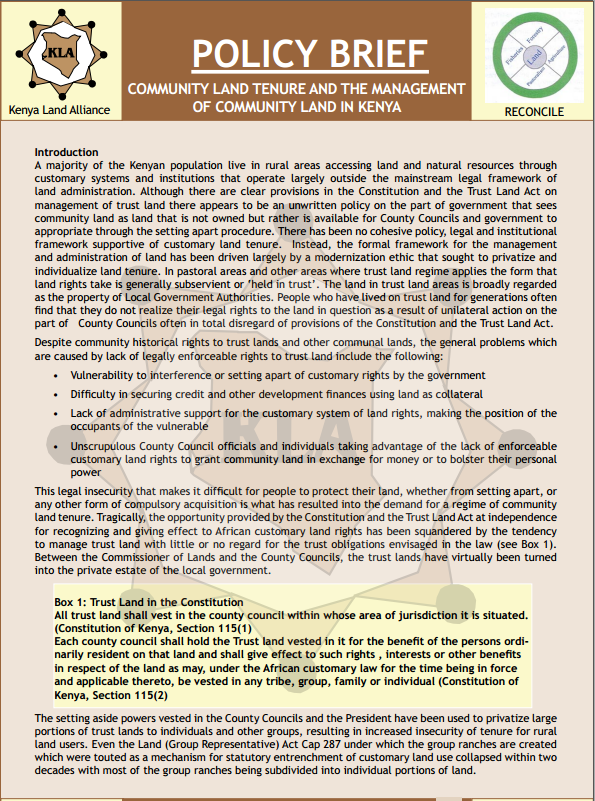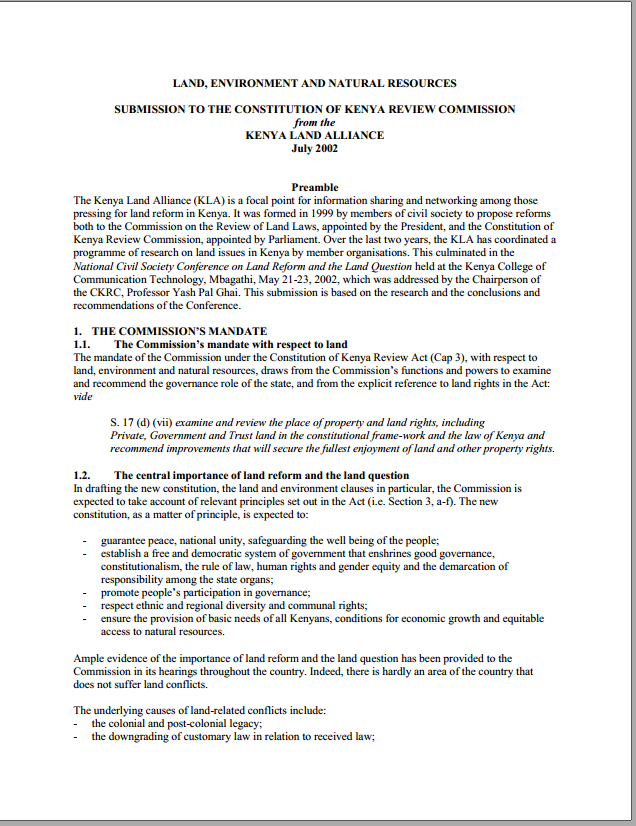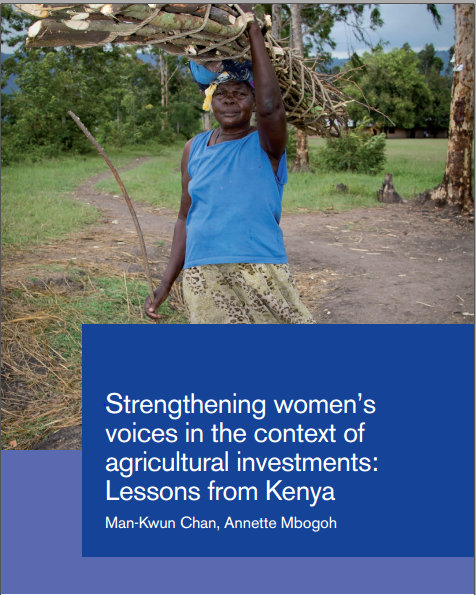The National Land Policy in Kenya Addressing Historical Injustices
The Historical Injustices Issues Paper seeks to present the various historical land claims issues and perspective related to them and consequently proffer policy statements for their redress.












